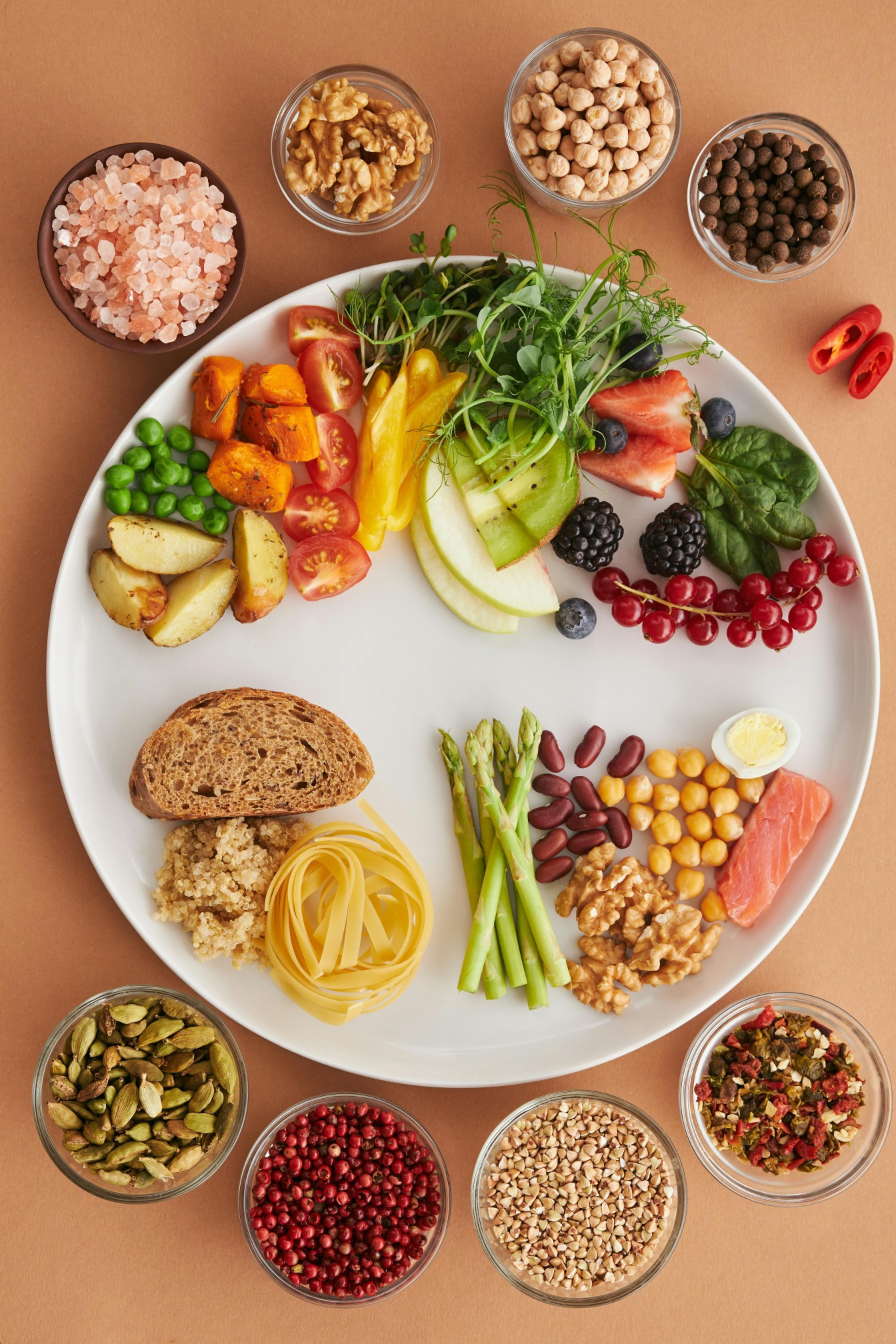How to Maintain a Balanced Diet

Maintaining a balanced diet is crucial for overall health and well-being. A balanced diet provides your body with the essential nutrients it needs to function properly, supports energy levels, and helps protect against chronic diseases. Here’s a comprehensive guide on how to maintain a balanced diet:
1. Incorporate a Variety of Foods
- Diverse Diet: Eating a wide range of foods ensures you get a mix of essential nutrients. Aim to include fruits, vegetables, grains, protein sources, and healthy fats in your daily meals.
2. Fruits and Vegetables
- Daily Intake: Aim to fill half your plate with fruits and vegetables. They are rich in vitamins, minerals, fiber, and antioxidants.
- Variety: Include a variety of colors and types to cover a broad spectrum of nutrients.
3. Whole Grains
- Choose Whole Grains: Select whole grains over refined grains. Whole grains retain more nutrients and fiber.
- Examples: Brown rice, whole wheat bread, oatmeal, quinoa, and barley.
4. Protein Sources
- Lean Proteins: Include lean protein sources such as poultry, fish, beans, tofu, nuts, and seeds.
- Plant-Based Proteins: Incorporating plant-based proteins can provide essential nutrients and promote a healthy heart.
5. Healthy Fats
- Unsaturated Fats: Focus on unsaturated fats found in avocados, nuts, seeds, and olive oil.
- Limit Saturated Fats: Reduce intake of saturated fats, which are found in red meat, butter, and full-fat dairy products.
- Avoid Trans Fats: Trans fats are found in many processed foods and should be avoided as much as possible.
6. Dairy or Dairy Alternatives
- Dairy: Choose low-fat or fat-free dairy options such as milk, yogurt, and cheese.
- Alternatives: If you are lactose intolerant or prefer plant-based options, look for fortified dairy alternatives like almond milk, soy milk, or oat milk.
7. Stay Hydrated
- Water Intake: Drink plenty of water throughout the day. Water is essential for digestion, nutrient absorption, and overall cellular function.
- Limit Sugary Drinks: Avoid sugary sodas, energy drinks, and excessive consumption of fruit juices.
8. Portion Control
- Serving Sizes: Be mindful of portion sizes to avoid overeating. Using smaller plates and bowls can help manage portion sizes.
- Listen to Your Body: Eat when you are hungry and stop when you are full.
9. Plan Your Meals
- Meal Planning: Plan your meals and snacks ahead of time to ensure a balanced intake of nutrients.
- Balanced Plates: Aim to include a portion of protein, carbohydrates, and healthy fats in each meal.
10. Mindful Eating
- Slow Eating: Eat slowly and savor each bite. This practice can help you enjoy your food more and recognize when you are full.
- Avoid Distractions: Try to eat without distractions such as TV or smartphones, as this can lead to mindless eating.
11. Read Food Labels
- Nutritional Information: Pay attention to nutritional labels to make informed choices about what you are eating.
- Ingredients List: Aim for foods with simple, recognizable ingredients and fewer additives.
12. Limit Added Sugars and Salt
- Reduce Sugar: Limit foods and drinks with added sugars, such as sweets, sodas, and some processed foods.
- Reduce Salt: Use herbs and spices to flavor foods instead of salt to reduce sodium intake.
13. Moderation is Key
- Balance: Enjoy a variety of foods but in moderation. It’s okay to indulge occasionally, but balance it with healthy choices.
- Treats: Allow for occasional treats without guilt, as long as your overall diet is balanced and nutritious.
14. Listen to Your Body
- Hunger Cues: Pay attention to hunger and fullness cues.
- Nutritional Needs: Adjust your dietary intake based on your specific nutritional needs, activity level, and health goals.
15. Seek Professional Guidance
- Dietitian or Nutritionist: If you have specific dietary needs or health conditions, consider consulting a registered dietitian or nutritionist for personalized advice.
Conclusion
Maintaining a balanced diet is about making informed, healthy choices consistently. By incorporating a variety of nutrient-dense foods, practicing portion control, and staying hydrated, you can support your overall health and well-being. Remember, a balanced diet is a sustainable approach to eating that can be adapted to your personal preferences and lifestyle.






